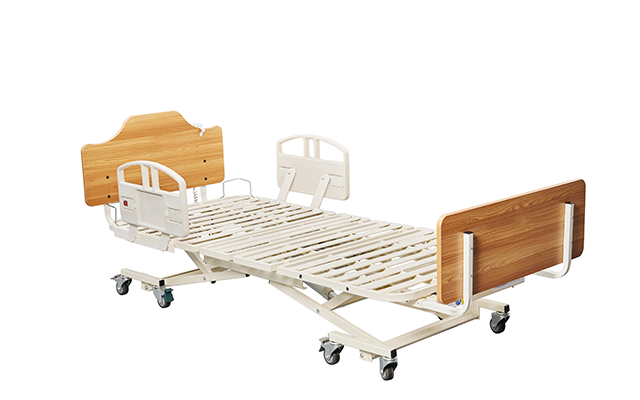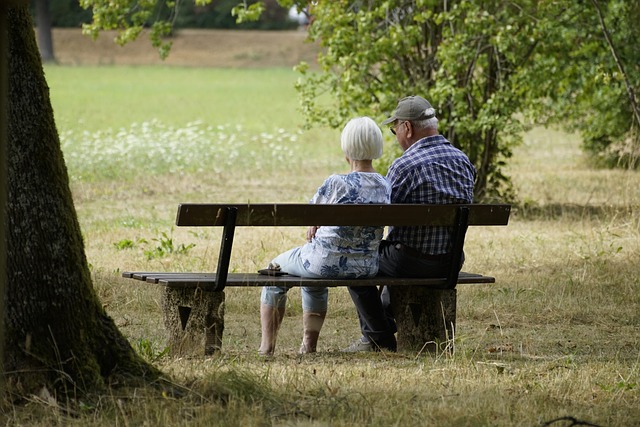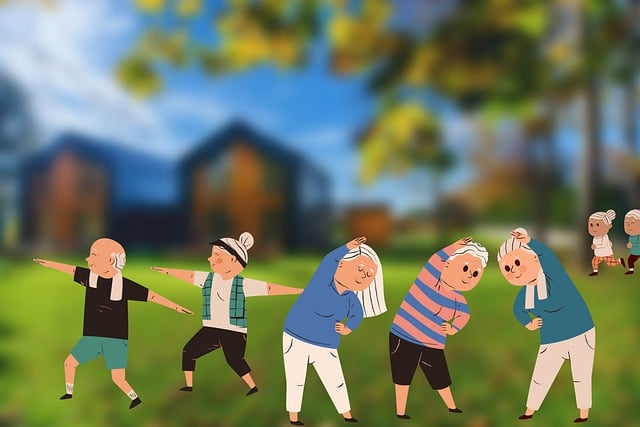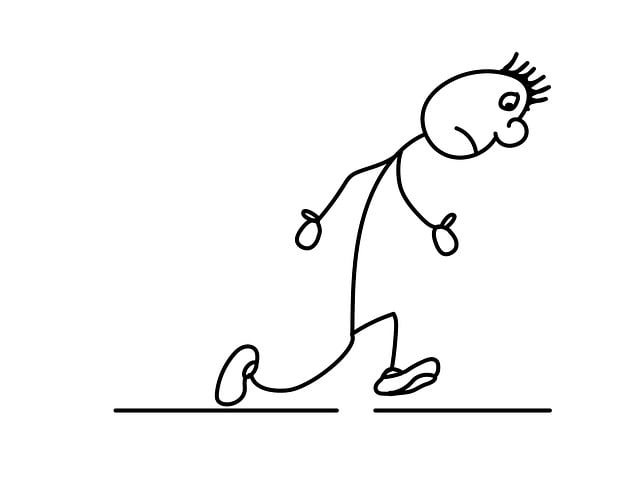As the world’s population ages, elderly patients are also increasing.Due to the degenerative changes in the physiological functions, morphology, and anatomy of various organs, tissues, and anatomy of elderly patients, it is manifested as aging phenomena such as weakened physiological adaptability, decreased resistance, etc.Therefore, most elderly patients have long course of disease, slow recovery, easy recurrence, and poor curative effect.The morbidity and hospitalization rates of elderly patients are higher than those of other age groups. It is particularly important to provide good nursing care for elderly patients, including psychological care.
Characteristics of elderly patients
Regarding the special group of the elderly:You cannot treat a young child with the eyes of an adult. Likewise, you cannot treat an old person with the eyes of an adult. This sentence brilliantly describes the characteristics of nursing care for elderly patients.
Psychological characteristics:For those who are new to the elderly, due to lack of physical strength, widowhood or retirement, their original life has changed significantly. It is difficult for them to adapt to this change in roles, and they will have some feelings of inferiority, emptiness, and loss, coupled with living in poverty. , diseases, death and other problems often plague the elderly,As a result, they are often lonely, bored, stubborn, have high self-esteem, hope to receive social respect, pay special attention to their own health, have strong doubts, are sensitive to people and things around them, and are depressed.
Physiological characteristics:Compared with young people, the elderly have reduced physiological functions of various organs due to degenerative changes, reduced compensatory capabilities, reduced body tolerance, poor resistance, reduced perception, vision, hearing, and memory, and slow reactions. Significant decline in intelligence, osteoporosis, etc.
Poor independence:Strong dependence, poor self-care ability, and decreased self-control ability.
Complex condition:Elderly patients often suffer from multiple diseases at the same time. For example, they suffer from cerebral hemorrhage and are also accompanied by hypertension, diabetes, etc. The cure period of the disease is long, the prognosis is poor, and the disease is prone to recurrence.
Critical condition:Elderly patients have low physiological functions, sudden changes in condition, co-existence of multiple diseases, and atypical clinical status. In addition, the elderly patients are slow to feel, which may easily lead to the risk of masking the underlying condition.
Nursing care points for elderly patients
Communicate effectively:Understand the characteristics of the elderly, care about their physical and mental health, and communicate well with patients and their families,Note that when providing information to the elderly, you should take into account the slow response of the elderly. It must be specific and from simple to complicated, according to their personal habits, patiently and enthusiastically repeated, and the speaking speed should be slow until the other party understands clearly.
Get enough sleep:It is difficult for the elderly to fall asleep and wake up easily. They should keep the ward quiet, turn off the lights early, reduce adverse stimulation, and create a good sleeping environment. They can also soak their feet in warm water before going to bed, teach them relaxation techniques, and instruct them to drink less water before going to bed. to help with sleep.
Dietary guidance ![]() evelop good eating habits, avoid smoking and drinking, eat small amounts frequently, pay attention to the mix of meat and vegetables, reduce the intake of salt, sugar and cholesterol, and eat more fruits, vegetables and easily digestible foods.Because the elderly have poor self-control ability, patients who must control their diet should ask their family members to store the food and drinks to prevent the patients from eating by themselves and affecting the curative effect.
evelop good eating habits, avoid smoking and drinking, eat small amounts frequently, pay attention to the mix of meat and vegetables, reduce the intake of salt, sugar and cholesterol, and eat more fruits, vegetables and easily digestible foods.Because the elderly have poor self-control ability, patients who must control their diet should ask their family members to store the food and drinks to prevent the patients from eating by themselves and affecting the curative effect.
Strengthen basic care
- Keep the bed unit tidy and dry
- Hemiplegic patients should strengthen the protection of the patient’s side pressure points, assist in passive movement of the limbs, and provide appropriate massage to prevent the formation of venous thrombosis.
- Avoid dragging, pulling, pushing, etc. when changing the patient’s position
- Take good skin care, especially for elderly patients who are confused and have difficulty communicating.
Be safe
- Fix the pager in a place where patients can easily touch it, and teach them how to use it. When taking over the shift, check whether the call system is normal to avoid delays in emergency situations.
- It is best for the bed of a hemiplegic patient to be against the wall, with the patient’s limbs facing inward, so that it is less likely to fall into the bed. Elderly people who are unconscious should add bed rails
 Instruct patients and their families that the elderly should move slowly when changing positions and take breaks to prevent postural hypotension and falls.
Instruct patients and their families that the elderly should move slowly when changing positions and take breaks to prevent postural hypotension and falls. - Increase the number of ward rounds as much as possible to observe changes in the condition and be more vigilant about adverse complaints from elderly patients to avoid delaying the condition.
Most elderly patients desire a lively and colorful life when faced with one or more chronic diseases, but chronic diseases accelerate the decline of their bodies and functions. Based on the psychological and physiological particularities of the elderly, in clinical nursing work , we should pay full attention to ideological understanding, regard elderly patients as partners in nursing work, pay more love to pay attention to the physical and mental health of elderly patients, try to meet their needs, keep them optimistic, and help them establish a good attitude towards overcoming the disease. confidence.
The importance of psychological care for elderly patients
Suffering from diseases, elderly patients are afraid of losing their ability to live independently, of being alone, and of being without relatives at their bedside for a long time.For example, retired patients feel useless and feel sorry for themselves. They feel lonely and sad when their spouses are widowed or their children are separated. They often have stubborn temperaments, eccentricities and willfulness, and lose their temper or become depressed and tearful about trivial matters.In addition to physical organ diseases, it is often accompanied by psychological disorders, psychological factors, social factors, and psychological factors, which are closely related to the occurrence and recovery of geriatric diseases.
Since elderly patients have different educational levels, personal personalities, cultural qualities, economic conditions, family environment, professional relationships and life experiences,
It manifests as fear of disease, depression, loneliness, worry and impatience, doubts and fears,The psychology of refusing to take medicine, the negative psychology of being pessimistic and world-weary, and the negative psychology of not cooperating with treatment often cause endocrine and metabolic disorders, leading to aggravation of the disease and even difficulty in recovery. Therefore, it is extremely important to provide psychological care for elderly patients.
Psychological problems of the elderly
At present, the health care of the elderly mainly focuses on drugs and fitness. Few people consider mental health issues. In real life, many elderly people are prone to loneliness, low self-esteem and the feeling of being useless due to a long-term lack of communication with others. The more they complain, the more they complain. It affects your mental health and you don’t know how to adjust your mentality.
Good psychological quality is beneficial to strengthening physical fitness and improving disease resistance. What kind of psychological state is healthy for the elderly?
Full sense of security:The family environment has the most important impact on the sense of security. Home is a haven to escape the wind and waves. Only when you have a home can you have a sense of security.
Fully understand yourself:It refers to the ability to objectively analyze oneself and make appropriate judgments and whether they are objectively correct, which has a great impact on one’s own emotions.
Life goals are realistic:You should set life goals based on your own financial ability, family conditions and corresponding social environment.
Maintain the integrity and harmony of your personality:The various psychological characteristics of personality, such as ability, interest, character and temperament, must be harmonious and unified, so that happiness and satisfaction can be experienced in life.
Find fun in learning:In order to adapt to the new lifestyle, you must continue to learn.
Maintain good interpersonal relationships and other senior activities
Able to express and control one’s emotions appropriately:Unpleasant emotions must be released, but not excessively. Otherwise, it will not only affect life but also aggravate interpersonal conflicts.In addition, emotions are generated through people’s evaluation of things. Different evaluation results cause different emotional reactions. There was an old man whose eldest son was a salt seller and his younger son was an umbrella seller.The old man is always worried. On cloudy days, he worries about his eldest son, and on sunny days, he worries about his younger son. A psychiatrist said to the old man: You are so lucky. Your eldest son makes money on sunny days, and your younger son makes money on rainy days. The old man became happy when he thought it made sense.
You can use your talents and hobbies to a limited extent, and at the same time, you can exercise your bones to prevent aging.
How to get to know the elderly
There are often some elderly people in life: after reaching a certain age or after some changes in their lives, their tempers and methods of doing things become weird. Some people become grumpy, withdrawn and stubborn, while others like to blame the next generation for no reason.
The old man starts to become weird. This is not because they mean to make him annoying, but because of the specific physiological and psychological factors of the old man.As people reach their twilight years, all parts of the body begin to show obvious signs of aging. Some elderly people still have to endure pain all day long, which inevitably makes their tempers more irritable. Some elderly people see that they are getting along with each other. Comrades and friends who have been friends for decades are constantly passing away, and I can’t help but think that my days in this world are very limited. When we see that our children are still unable to stand on their own in life, of course we will feel anxious and worried for them.
Some elderly people begin to become withdrawn and depressed because their days are numbered and they think about the short life and the boring life. Under such circumstances, if their children cannot show more care and consideration to the elderly, they will Being dissatisfied with him will pour more cold water on the old man’s sad mood, making him feel doubly cruel of life. Therefore, it is very necessary to be considerate and accompany the eccentric old man.
Psychological needs of the elderly
Health needs:This is a common psychological state among the elderly. When people reach old age, they often fear aging, illness, and death.
Job requirements:Most retired elderly people still have the ability to work. Leaving their jobs suddenly will definitely generate many thoughts, hoping to work again and reflect their own value.
Dependent requirements:As people age, their energy, physical strength, and mental capacity decline, and some people cannot take care of themselves completely. They hope to be cared for and filial by their children, which will make them feel dependent in their old age.
Psychological nursing measures for elderly patients
Depressed mood:When people get old, they have a feeling of sunset. This fragile mentality becomes negative after getting sick, resulting in a pessimistic and disappointed mentality. They think that they are useless and will increase the burden on others. Therefore, passive cooperation with treatment is mainly Seen in patients who have strong self-esteem and independence and are more seriously ill.
Nursing principles:Increasing the communication between nursing staff and patients and establishing a harmonious relationship between nursing staff and patients are not only the basis for comprehensive and accurate collection of information, but also effective communication is one of the important measures to reduce and eliminate the low mood and depression of elderly patients. Elderly patients due to work The reduction in social activities and the lack of someone to talk to can easily lead to depression. Relationships and support from family members are very important.
Loneliness:It mainly occurs in patients who have been hospitalized for a long time and lack the company of relatives. Most of these patients are introverted and seldom speak. Other patients are unwilling to interact with them. In addition, few people come to visit them, making the patients feel very lonely. Symptoms include being idle, depressed, often bedridden, etc.
Nursing principles:Establishing channels for emotional communication with patients is the best way to eliminate loneliness. Although these patients appear calm on the outside, they are rich in emotions inside. In nursing care, we should take the initiative to contact patients, exchange ideas, and guide patients to participate in some practical activities.
Anxious:This is the most common psychological problem among elderly hospitalized patients. It is present to varying degrees in every patient, but is most evident in first-time hospital patients during their first week of admission. They still don’t know what disease they have, its severity, and when it will be cured, so they are anxious and anxious.
Nursing principles:Explain, support, and relax training. Provide careful explanations to the questions raised by patients so that patients can understand their condition, point out the causes and adverse effects of anxiety, and conduct relaxation training. Patients can accept the nurse’s opinions and in a short time If you eliminate or alleviate this kind of psychology within a certain period of time, your sleeping and eating conditions will be significantly improved.
Fears and Doubts:It is mainly seen in patients with worsening condition or cancer patients or those whose condition requires surgical treatment. They think that the patient is terminal and approaching death, or they are afraid of surgical treatment.
Nursing principles:Guidance and explanation, such as encouraging patients to actively participate in and perform various treatment, care, and rehabilitation activities, introducing knowledge about the disease and preventive health care measures, can reduce fear. At the same time, such patients must be cared for more carefully and thoughtfully, and their words and deeds must be cautious. Let him know something about surgery and other knowledge, and don’t let the patient feel that his condition is critical and lose confidence in treatment.
Emotionally unstable:It is more common in patients who are easily irritable, impatient, picky, etc. Their emotional changes may come from financial burdens, illness and relatives, etc. They want to vent their discomfort about their illness and slightly unsatisfactory things, often to nurses or escorts. personnel.
Nursing principles:Understand, tolerate and tolerate, provide guidance, and at the same time help establish a good social support system, such as encouraging family members, relatives and friends to visit frequently and provide emotional support and care.
Common symptoms of the elderly
Do not eat if you have diarrhea:The elderly have weakened digestive functions and reduced resistance. They are prone to intestinal diseases causing diarrhea in summer and autumn, such as acute enteritis.
Beware of winter night cramps:Some frail elderly people often suffer from calf cramps at night, which causes unbearable pain. Sometimes they cramp several times a night, causing them to be unable to sleep well at night.
Medical research believes that nighttime calf cramps are generally caused by the decrease in serum calcium ion concentration in the human body, which increases the excitement of nerves and muscles. However, cold stimulation, long-term bending of the lower limbs during deep sleep, sudden leg extension, etc. It is often the external cause that induces calf cramps. To prevent and treat cramps caused by hypocalcemia, the main methods are as follows:
In meals, pay attention to choosing fresh foods that are high in calcium and are beneficial to nutritional balance, such as milk, soy products, dried shrimps, kelp, etc., which can also supplement the body’s calcium. You can also take calcium gluconate tablets, calcium gluconate tablets, calcium lactate and other calcium-containing drugs under the guidance of a doctor. Pay attention to eating more foods containing vitamin D.
In the cold season, you should not wear too few clothes, the quilt should keep warm and your legs should not get cold, and you should not stretch your legs too fast or too hard when you wake up.
How to take care of the elderly
Change lifestyle:
- Reasonable meals
- Control weight
- Proper exercise
- Quit smoking
- Reduce mental stress
Carry a frequently used first aid kit with you when you go out in case of emergency, and check the expiration date regularly.
Family members can put the home address and family contact number in a small pouch for the elderly, preferably embroidered on the inside corner of the clothes.
Commonly used items: watches, cushions, change, crutches, reading glasses. Hearing aids, special mobile phones, hats, small towels.
Seven taboos for the elderly
Avoid using hard-bristled toothbrushes. Elderly people have fragile gums. Using a hard-bristled toothbrush will cause traumatic gum damage due to the collision of hard bristles, leading to periodontal disease.
Avoid overeating. The digestive function of the gastrointestinal tract in the elderly is reduced. Overeating will lead to fullness in the upper abdomen, affecting the normal activity of the heart and lungs. In addition, a large amount of blood is concentrated in the gastrointestinal tract when digesting food, resulting in a relative reduction in blood supply to the heart and brain, which can easily induce myocardial infarction and stroke.
Avoid excessive drinking. Excessive drinking can dilate blood vessels, cause angina pectoris due to a drop in blood pressure, or cause cerebral hemorrhage due to a sudden increase in blood pressure.
Avoid eating too salty food. Eating too much salt will increase circulating blood volume, weaken the sodium excretion function of the kidneys in the elderly, lead to vasoconstriction, increase blood pressure and increase the load on the heart, and even induce heart failure.
Avoid sleeping on spring beds. Sleeping on a spring bed causes the elderly’s body to collapse. Although the upper muscles of the body can relax, the lower muscles are tightened, which can easily aggravate the symptoms of elderly people suffering from lumbar muscle strain, bone hyperplasia, and cervical spondylosis.
Avoid standing up suddenly after sitting for a long time. Elderly people who stand up too quickly after sitting for a long time can relatively reduce cerebral blood volume, causing temporary cerebral ischemia, dizziness, vertigo, palpitations, and easy falls, leading to accidental trauma.
Avoid bathing too frequently. The skin of the elderly becomes thinner and wrinkled, and the sebaceous glands atrophy. Bathing too frequently can easily make people tired and make the skin dry due to lack of oil. If alkaline or acid soap is used again, it will irritate the skin and cause itching or cracks.
Post time: Dec-02-2024





